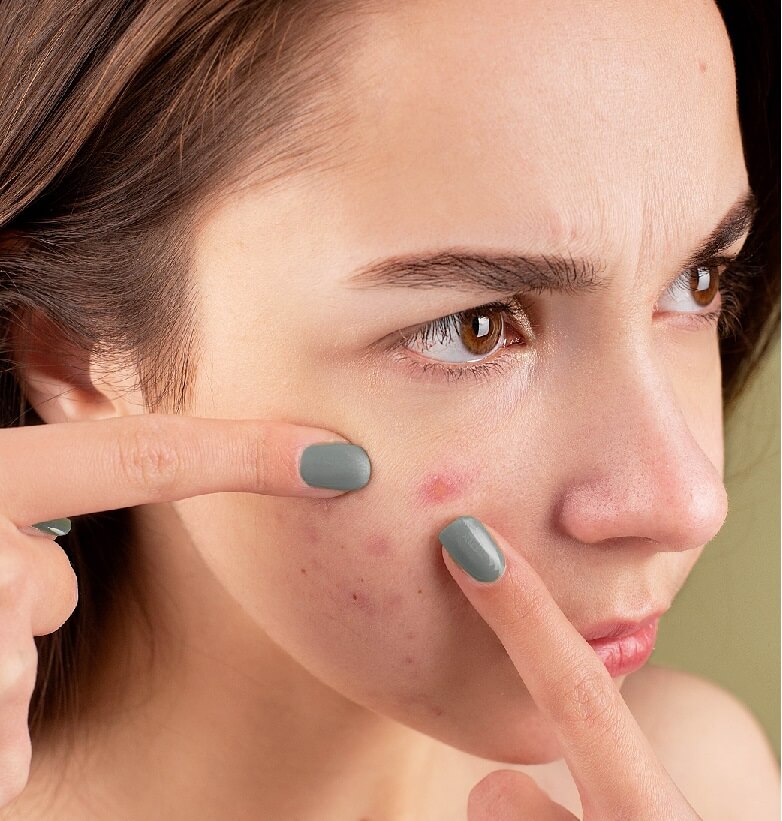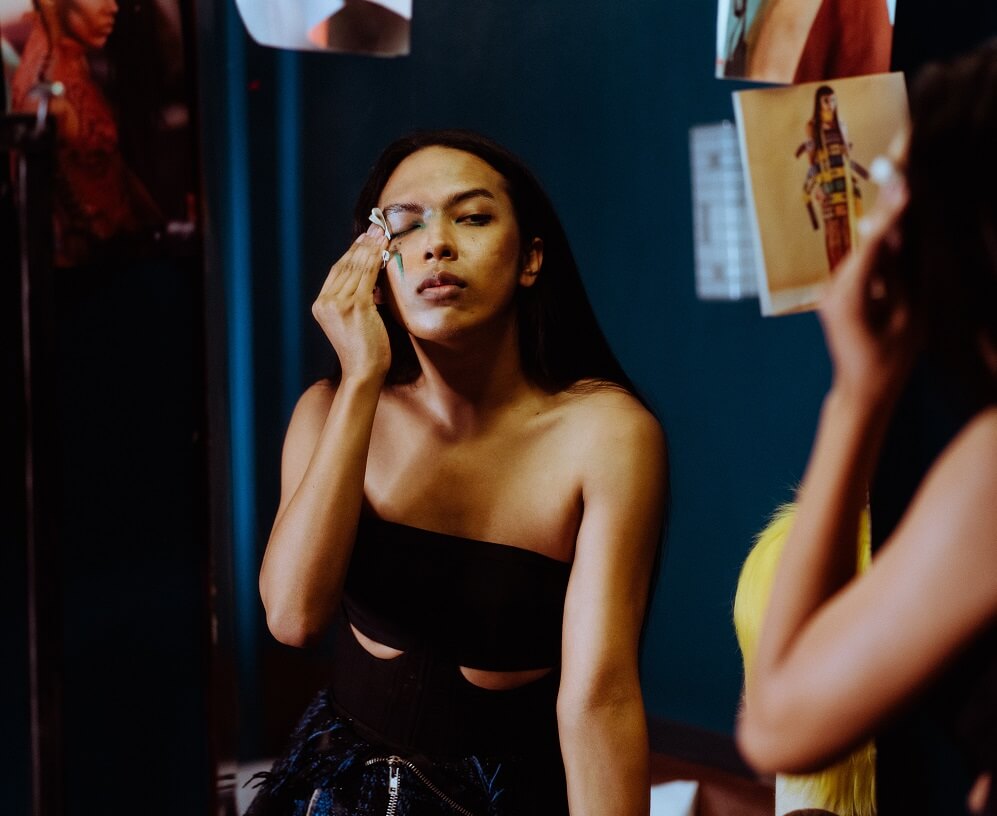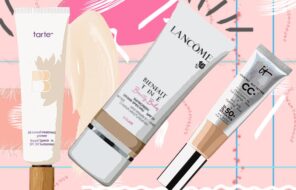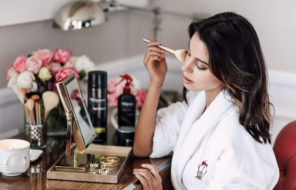We’re the first to say that we love a good beauty beat. Whether you like a “your skin but better” approach or a head-turning look that would make the most devoted MAC Cosmetics associate jealous, here at Glowsly, we’re always championing makeup exploration. However, wearing daily makeup can come at a price. Along with having to factor in additional prep time, if you don’t engage in the proper removal routine, wearing daily makeup can work against you and your skin.
While you don’t have to firmly be in the pro or anti-makeup camp, knowing what you’re getting yourself into when you wear makeup (or don’t) can help you make more informed decisions when it comes to your skincare and makeup routines.
Pros of wearing makeup daily
Makeup can do many things, from boosting mood to improving skin. Here are a few ways that wearing makeup can be beneficial.
Boosts your skin health
Nowadays, it’s not uncommon to find makeup with active ingredients. From niacinamide to hyaluronic acid to SPF, multifunctional makeup can improve the look, feel, and health of your skin — one application at a time.
Evens out your complexion
No matter what Instagram and TikTok filters would have you believe, hyperpigmentation is normal. Most people have some form of it — although some individuals may have more obvious signs. From melasma to light hyperpigmentation, anything from a sheer tinted moisturizer to a full-coverage foundation can help even your skin tone.
Gives you a confidence boost
From a bold red lip to an ultra-effective mascara, makeup is a great way to give you an ego boost. While it shouldn’t replace true confidence (that should come from within), there’s nothing wrong with rocking a little cosmetic power when you need a minor boost.
When daily makeup-wearing goes wrong

As with anything else in life, moderation is the key to avoiding common pitfalls. Makeup is no different. For all that’s wonderful about color cosmetics, there are some drawbacks.
Can encourage texture and irritation
To be clear, makeup alone won’t cause your skin to experience more stress — unless you’re allergic to it. However, there are a lot of people who think that sleeping in their makeup is OK.
Not only is this ruining your bed sheets and pillowcases, but it’s also clogging your pores which can encourage breakouts, whiteheads, and blackheads. If you’re not currently invested in a proper makeup removal routine yet wear color cosmetics daily, you need to rethink your life choices. Trust us, your skin will thank you.
May aggravate skin sensitivities
Wearing makeup every day doesn’t guarantee that you’ll experience breakouts. However, research has consistently shown that daily makeup wearing can make this possibility more likely if you already have acne-prone skin — a phenomenon known as acne cosmetica.
Similarly, those with eczema or other skin conditions like contact dermatitis or psoriasis may find daily makeup applications aggravate sensitive and irritated skin further. While you don’t need to ditch makeup altogether, you might consider switching up your product lineup and forgo the heavy full-coverage foundation for something lighter.
Doesn’t replace sunscreen
Yes, read that headline again. Makeup — even the kind with SPF infused into it — isn’t a substitute for practicing proper sun protection health. In reality, the opposite is true. Dermatologists recommend applying sunscreen every two hours and wearing at least 30 SPF.
By relying solely on SPF-infused foundations or makeup, you can give yourself a false sense of security that your skin is protected. But if you’re not reapplying every two hours, your skin is susceptible to burning, damage, and beyond. Protect your skin by investing in an SPF spray or stick to reapply throughout the day.
Can highlight skin’s imperfections
This has always been a potential reality. However, in today’s filter-obsessed society, where even makeup brands are marketing products without disclosing that filters are being used to achieve “flawless” skin, texture can stick out like a sore thumb.
Everyone has texture in their skin. However, if you’re picking the wrong makeup, it can settle into and illuminate fine lines or texture. Again, the fix for this is easy: Pick makeup that’s catered to your skin type.
Avoid skin irritation from daily makeup applications

We’re well aware of the fact that die-hard makeup fans aren’t going to put down their brushes any time soon. No matter how much evidence is published on the potential risks of daily makeup wearing, they’re still going to rock it. However, we have a few tips to help minimize your chances of experiencing an adverse reaction.
- What goes on must come off. No matter how tired you are, sleeping in makeup should never be an option. Although double cleansing with a balm or oil is best, keep makeup remover by your bed for those late nights.
- Pick makeup for your skin type. One of the fastest ways to experience unwanted reactions from makeup is to pick items that aren’t suited for your skin. Get to know your skin type and select makeup products accordingly.
- Wash your makeup tools regularly. In a perfect world, you’d wash your brushes and sponges daily. For real life, aim for once a week to keep them clean and prevent bacteria, dirt, oil, or other nasties.
- Toss expired makeup. Similar to using dirty makeup tools, using expired makeup — especially if it contains active ingredients — is a recipe for disaster.
- Invest in SPF. As tempting as SPF-infused makeup can be, it doesn’t offer the same level of protection as stand-alone SPF products. Find an SPF you love and be sure to always use it.
Should you wear makeup every day?
Ultimately, the choice to wear makeup every day is a personal one. While some people wouldn’t dream of leaving the house without makeup, others might not be so dedicated. More importantly, what qualifies as “wearing makeup” can vary widely.
We can’t tell you what to do with your face. However, you should consider your skin type and sensitivities when adjusting your makeup habits.





